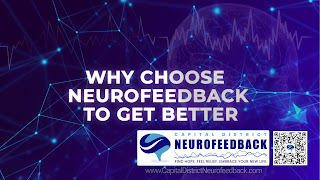Can Neurofeedback Improve Mental Performance? Explained By Licensed Psychologist Dr. Randy Cale
Can you improve your performance on the court or in the courtroom? Whether for sport, music, or something else, does your child want to enhance their abilities but find that their mind is getting in the way? If you want your child to perform better, read on to find out how a few revolutionary technologies can help. First: • Heart rate variability training: You may have seen heart rate variability training showing up everywhere these days. A lot of people are talking about it. However, it is important to understand that there's a nuance to this form of training that involves more than just watching a YouTube video of a screen going up and down while you breathe with it. But can many people improve their heart rate variability this way? Probably, but I have also found that many people do not, despite months of using heart rate variability breathing. For this reason, it is better to use biofeedback equipment to measure heart rate variability and ensure that you're making progres...


